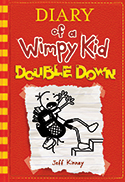By Sonya Chung - April 28, 2016 - The Millions
In my last semester of graduate school, I sat in my advisor’s office discussing with him my struggle with plot. I didn’t much care about it, and it felt unnatural to graft it onto my stories. He said that my strength was “an ear for language,” which was something I’d heard before. Toward the end of the meeting, he declared, a bit too casually, “You know, maybe you’re actually a poet.”
My heart sank. Too little too late, I thought. I was 25 and had never written a poem in my life. To this day, I confess the idea haunts me a little. But prose writers don’t up and become poets. It just doesn’t happen. Or does it?
It certainly happens the other way around, and that’s always fascinated me. Whenever I teach Denis Johnson’s work, for example, I often save “the big reveal” for the end of the discussion: “Johnson started out as a poet. Can’t you tell?” The students nod and consider; some of them light up. There is a sense in which I am making a subtle argument — that “literary fiction” as a genre is in fact the fiction of poets: language-rich, language-precise, language-driven. Secretly, I want to fake like I actually was a poet before I started writing fiction; because that’s how you develop the full range of skill and originality.
Enter April Bernard, Idra Novey, and Jennifer Tseng — three talented poet novelists (among many more, I should say) who kindly took the time to answer some questions about moving between the genres, blurring the genres themselves, authorly identity, and their most recent works.
MORE

















